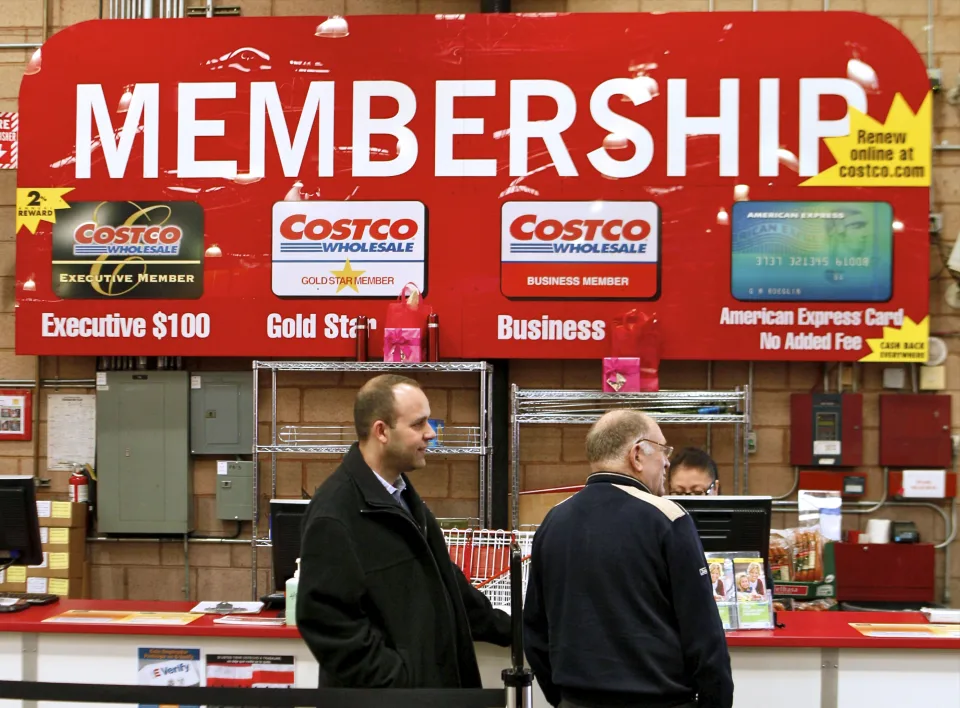
Costco (COST) stock could be nearing a key inflection point after a challenging holiday season, provided execs finally reveal a long-rumored profit-boosting member fee increase.
“We believe we may reach a compelling tactical inflection point at some time in the next 2-3 months ahead of a potential membership fee increase in the spring,” John Heinbockel, analyst at Guggenheim, wrote in a new client note on Tuesday.
Costco’s last membership fee increase took place on June 1, 2017. The warehouse club hiked its Gold Star membership fee by $5 to $60 a year and its Executive membership fee by $10 to $120.
According to Heinbockel’s analysis, Costco stock rose 11% on average three months prior to the last three membership fee increases in 2006, 2011, and 2017. The stock gained 15% on average six months prior to each announcement.
And rival warehouse retailer Sam’s Club, a division of Walmart (WMT), enacted a membership fee increase in Sept. 2022, which could provide Costco cover to lift its own prices.
But Costco execs have pushed back consistently on the fee increase — even at the expense of upsetting Wall Street — citing that’s not good for inflation-ravaged consumers.
Costco CFO Richard Galanti told Yahoo Finance in December the retailer isn’t ready to raise the cost of its membership. Galanti stated that the company will clearly outline any fee increases to Wall Street if and when the time comes.
With Costco pushing back on the membership fee hike, shares have traded on slowing sales growth at the warehouse king and the potential for that trend to continue in 2023 amid a sluggish economy.
Costco didn’t have a perfect November. The company reported on Nov. 30 that same-store sales growth cooled versus October, and the Street wasn’t super hot on Costco’s earnings when they hit on Dec. 8, either.
Shares are down about 8.6% in the past month versus a 6.4% drop for the S&P 500.
Meanwhile, the company is slated to reveal key December sales results later this week.
“Based on our conversations with investors, this incorporates another below-trendline comparable sales result as well as below-consensus second quarter earnings in early March,” Heinbockel added. “This lower bar would cushion the impact of any near-term shortfalls with modest likely incremental weakness, perhaps no more than 5%, despite a 17x 2023E EBITDA multiple, still one of the highest in large-cap retail.”























